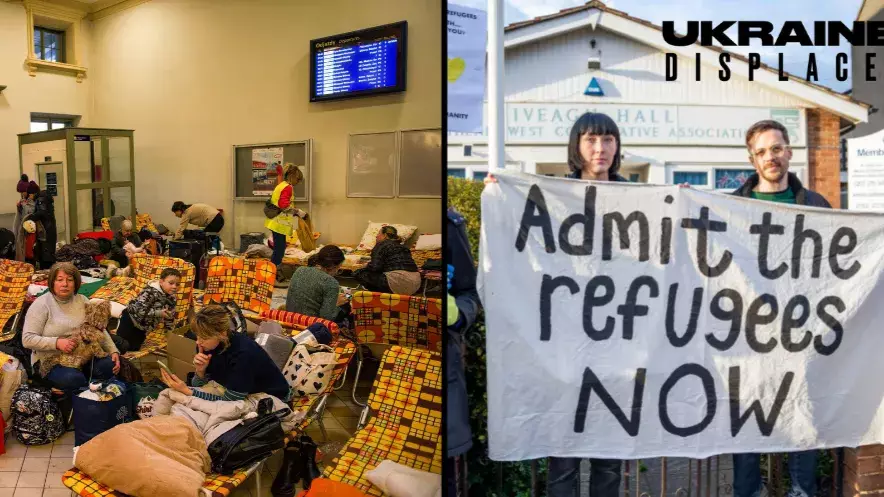
"What's the difference between a Ukrainian travelling through Poland, Germany, and France to England and a Syrian or a Yemeni that is travelling through other parts of Europe to come here?
"The UK's Ukrainian visa scheme is not well thought out at all. It seems as if it's been made up on the hoof. It must have been because it's contrary to all of the Home Office policy and contrary to their flagship immigration bill that is about to become law.
"Everything about it seems to be back-of-a-fag-packet stuff, reacting to headlines rather than thinking about what to do."
That's the harsh assessment of the UK's response to the plight of refugees from Ukraine - and further afield - of a leading immigration lawyer.
Christopher Cole is a member of The Law Society's Immigration Council. He told LADbible that the 'problematic' system the UK has put in place to offer safety to Ukrainian evacuees and refugees is 'directly at odds' with a controversial bill currently going through Parliament.
The Nationalities and Borders Bill has been slammed by charity Médecins Sans Frontières as making Britain 'one of the most anti-refugee countries in the world'.
It includes clauses that could allow the government to send refugees to offshore detention facilities and keep them there indefinitely.
That clauses was rejected at a reading by the House of Lords, but reinserted by a majority Tory vote on Tuesday evening (22 March).
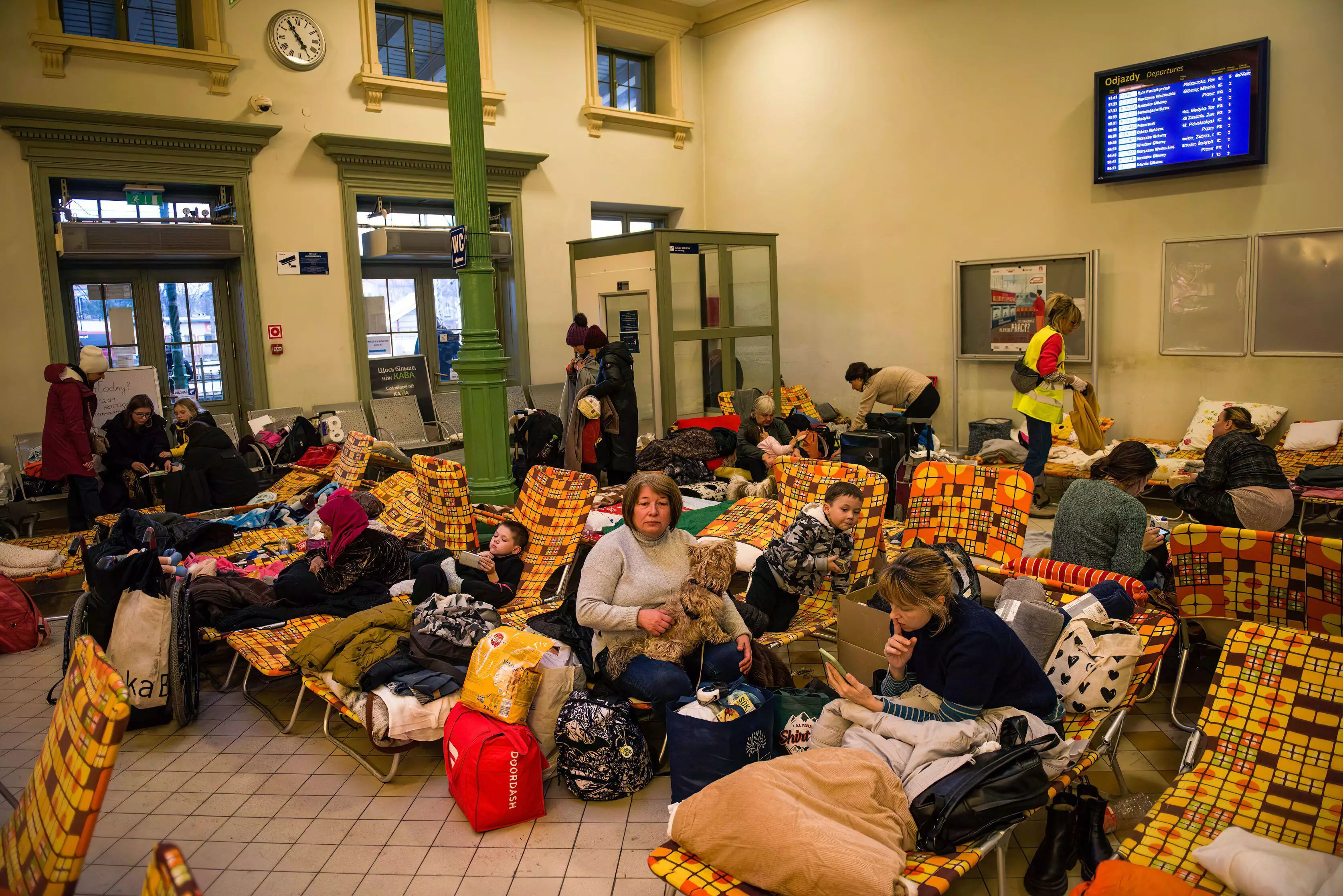
The UK scheme differs vastly from others around Europe, where visas have been waived and refugees processed and - at least temporarily - settled immediately upon arrival.
Here, the system requires Ukrainians with a valid passport or ID card to find a sponsor and apply for a visa before they set foot on UK soil.
This extra bureaucracy has been criticised by some within the legal profession, and even from within the governing Conservative Party.
Moreover, it has created a huge amount of work for a Home Office that is already snowed under. To date, more than 20,000 visas have been issued after public pressure led to an overhaul of the process.
But, with potentially hundreds of thousands of people fleeing Ukraine for their lives, what does it mean to those already waiting - some already in the UK, and many who have been waiting for years - now that this crisis has taken precedent?
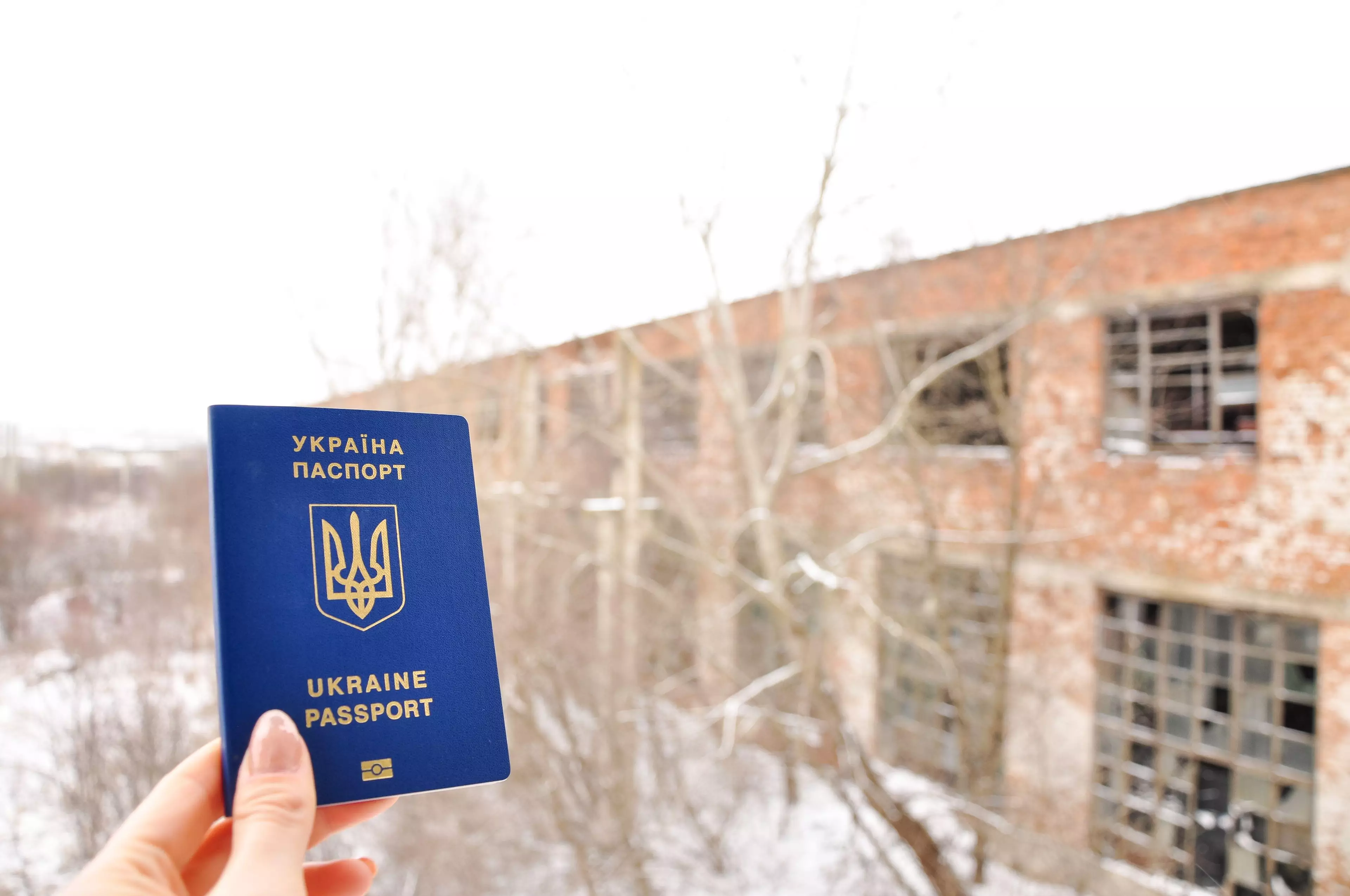
Christopher Cole, a member of The Law Society's Immigration Council, told LADbible: "It's going to be problematic.
"The Home Office - in terms of dealing with immigration matters - for years has been under a lot of pressure and has been described as not fit for purpose, with very little resources.
"What they're putting in place for the Ukrainians is going to be really resource intensive, and it pours away resources from other areas.
"There are already huge backlogs in ordinary asylum decision making, plus in terms of ordinary folks trying to get visas from other parts of the world to join family.
"Any shift in resources is going to have an impact on the normal business part of the Home Office immigration process.
"I've already seen it through speaking to people about waiting times increasing and the Home Office sending out emails saying, 'we're now dealing with the Ukrainian crisis, and we don't have time to deal with standard applications in the normal time scale'."
The Home Office has declined to comment on average waiting times for those applying to come to - or remain - in the UK.
What has transpired in Ukraine is no doubt shocking, and particularly so given the relative proximity of Ukraine to the UK.
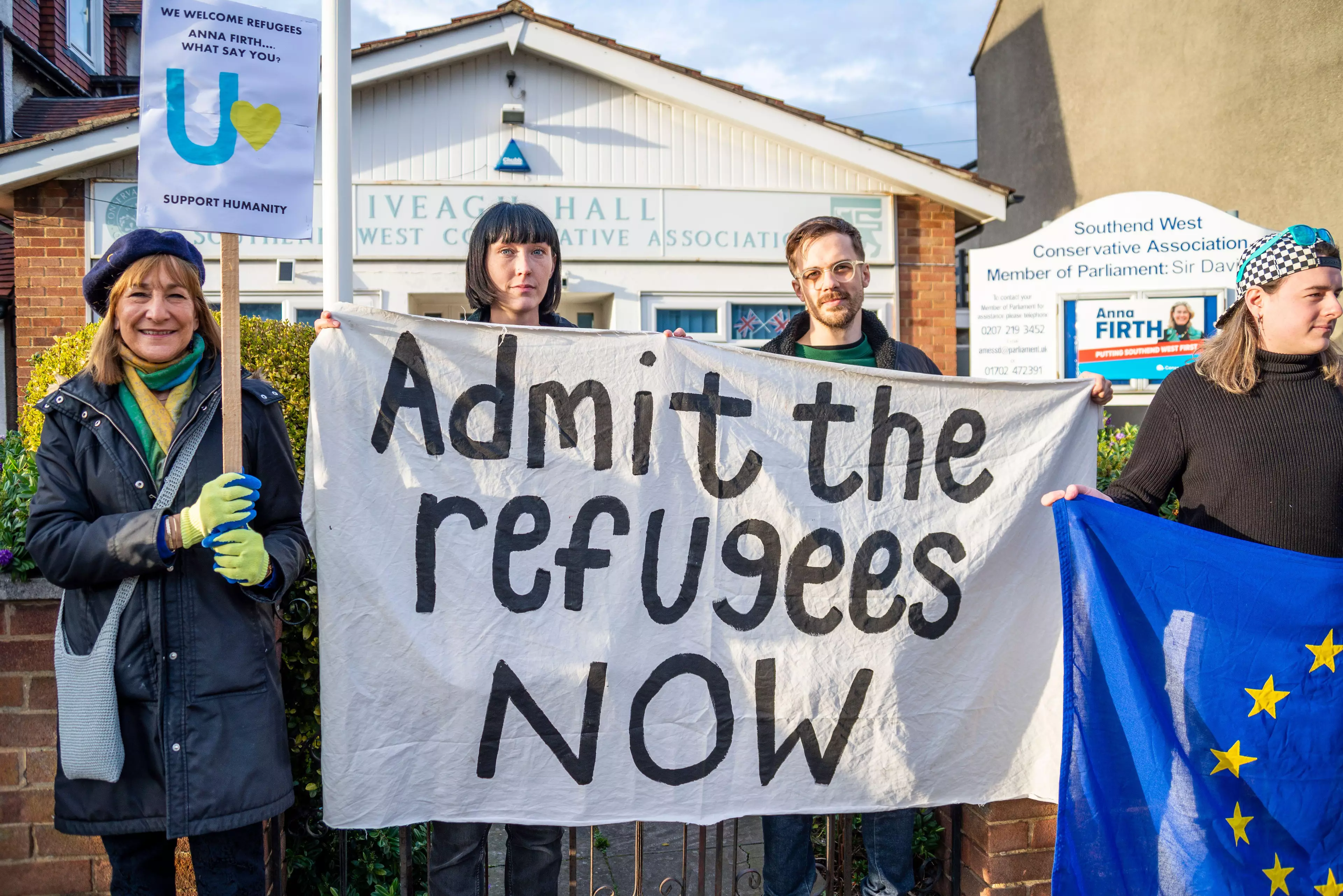
But there are many people fleeing terrorism, persecution, and war from around the world who are not - for want of a better word - parachuted into the UK through a specially provided visa process.
Cole continued: "Clearly [the government] were intent on making it as difficult as possible for anyone to come and obtain refuge in the UK.
"That's the whole immigration policy for many years and that's what's in the current Nationality Bill, to make the UK the most difficult place in Europe to obtain refuge, whether that's from war, persecution, humanitarian crises, whatever.
"It's odd for the government to on one hand have this really harsh policy and then suddenly have public pressure to admit as many Ukrainians and help as many as possible.
Explaining the bill further, he added: "It is trying to implement a two-tier system so that anyone who came through what the Home Office deem to be a 'safe' third country will only be allowed to remain temporarily whilst moves were made to remove them back to that country, and would essentially penalise and - in certain circumstances - criminalise them for that sort of journey."
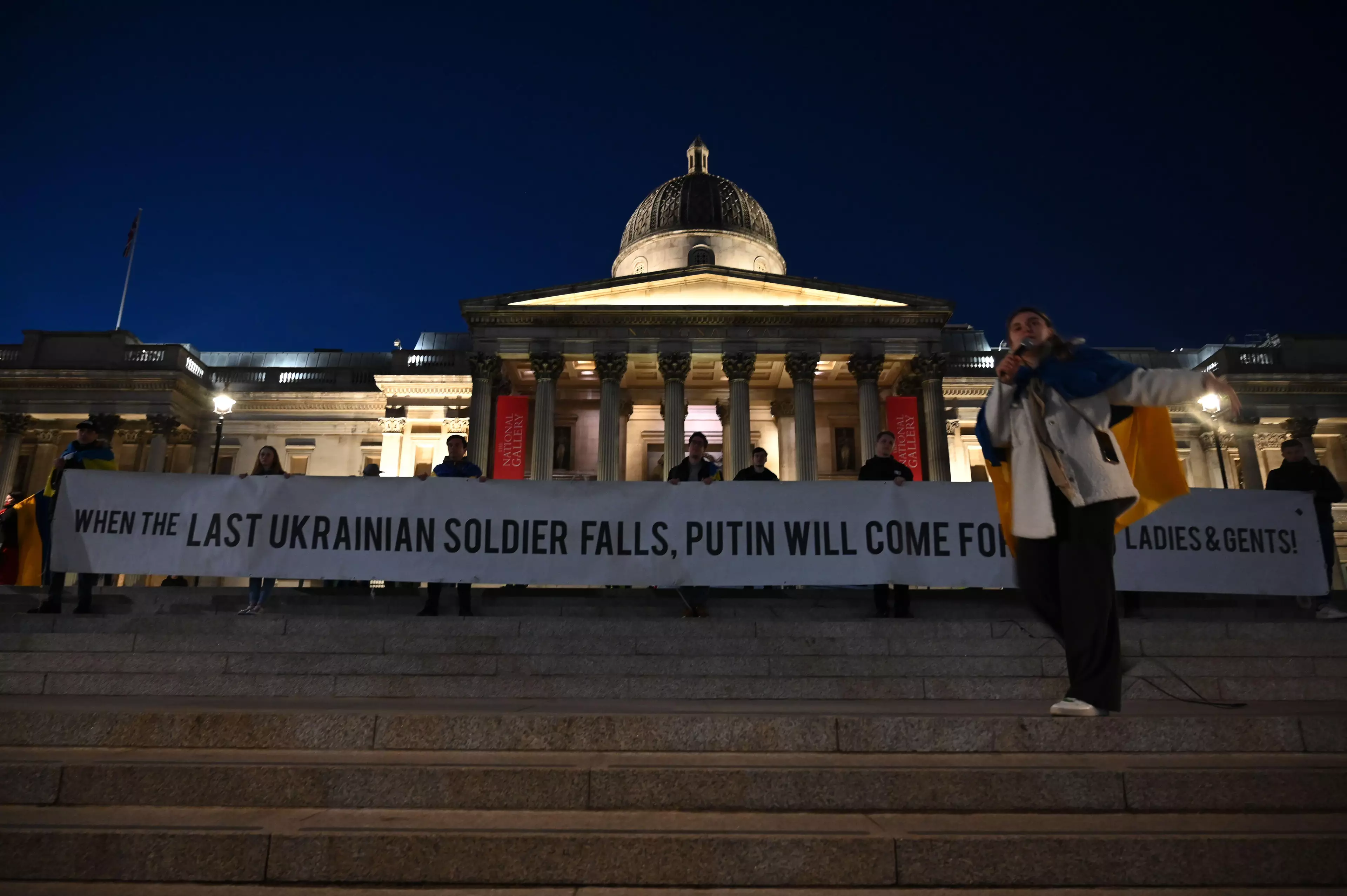
This sits at odds with the policy on Ukraine, as all refugees from Ukraine will pass through a theoretically 'safe' third country if they are to arrive in the UK.
"That's the dilemma that the Home Office has," Cole said.
"What they're offering Ukrainians is completely the opposite of what they're trying to drive through as their flagship immigration policy, it can't be married up in any way, they're so diametrically opposed.
"They've had to think of things and react quickly to try to deal with matters that are the opposite of their current policy thinking.
"That's why it's changed so often.
"It was immediate family members, then it changed to certain extended family members, then they widened it a bit more, there was outcry about having to attend a visa application centre to provide fingerprints, now that's changed."
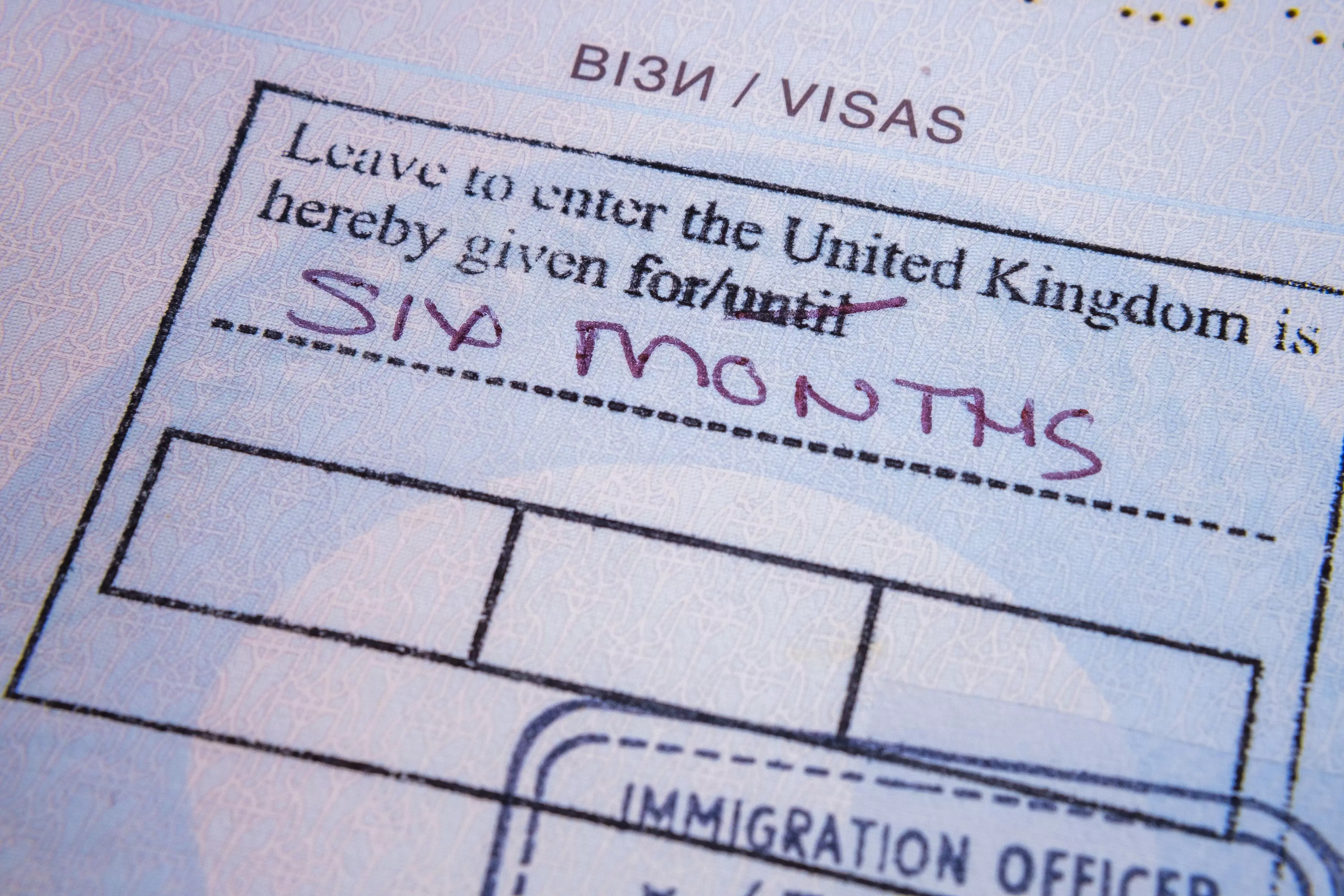
No-one can sensibly argue against taking in people from Ukraine.
The violence is too present, and the threat too real to innocent civilians.
However, there are already many people in the UK with the Home Office's Sword of Damocles dangling above their head as they wait for a decision on whether they can stay.
Many are vulnerable, many are victims of trafficking, and many - like the Ukrainians - are fleeing terror and war.
Miranda Butler, a barrister at Landmark Chambers and an immigration law specialist, explained: "I have clients - particularly in the UK who wait two or three years to get a decision on asylum claims, claims to have been a victim of trafficking, claims to stay here with their families, and claims trying to resist deportation.
"There is a whole gamut of individuals who have been badly affected by delay.
"It's very difficult to force the Home Office to make a decision within a decent time-frame by going to court, even if you have the funds to do so, and the result of that is that people - many of whom are extremely vulnerable or have compelling reasons to want to stay here - are left in limbo, not just for months but years."
Butler is a strong advocate for refugees and works with non-governmental organisation IMIX to change the narrative surrounding migrants and refugees.
She believes that the Homes for Ukraine scheme has been devised specifically to denote that those arriving from Ukraine are not refugees.

A search through the application pages for both sponsorship and visa application reveals that the word 'refugee' does not appear once, a decision which is hard to argue is not deliberate.
Butler continued: "The entire reason we have these complex bureaucratic schemes is so that this government doesn't treat these people as asylum seekers or refugees, which is what they are plainly.
"Anyone from Ukraine is a refugee.
"That is what every other country has recognised and that is why the rest of Europe has welcomed these refugees with open arms and protection.
"Our government is currently pushing through the Nationality and Borders Bill which is predicated essentially on the idea that we don't want refugees to come here unless we choose to resettle them, because the government is very concerned about where unrestricted levels of immigration could lead to, even though we receive far fewer asylum claims than any other European country.
"In the last year, we received around half the asylum claims that France received.
"In order to be seen to be doing something, in response to the beautiful outpouring of desire to help Ukrainians in this country, the government has created these schemes which appear to be somewhat generous, but aren't as generous as the Refugee Convention, don't recognise the international law rights of Ukrainians, and - very importantly - which don't appear to lead to resettlement, which refugee status does.
"That means that these people are going to be 'guests' for a limited period, which for some won't be a problem, of course we hope that the Ukraine conflict will end, and these people can go back and rebuild their lives, communities, and country.
"But, for a large number of people, they will want to stay here, or it's a sad possibility that they may have to stay here if the war continues.
"They're put in this situation where the only way to come to the UK is through this narrow and restrictive scheme that flies in the face of the Refugee Convention, given that the convention recognises that if you're a refugee you don't have documents, you don't have time to apply for visas, all you have time to do is run over the border with the clothes on your back."
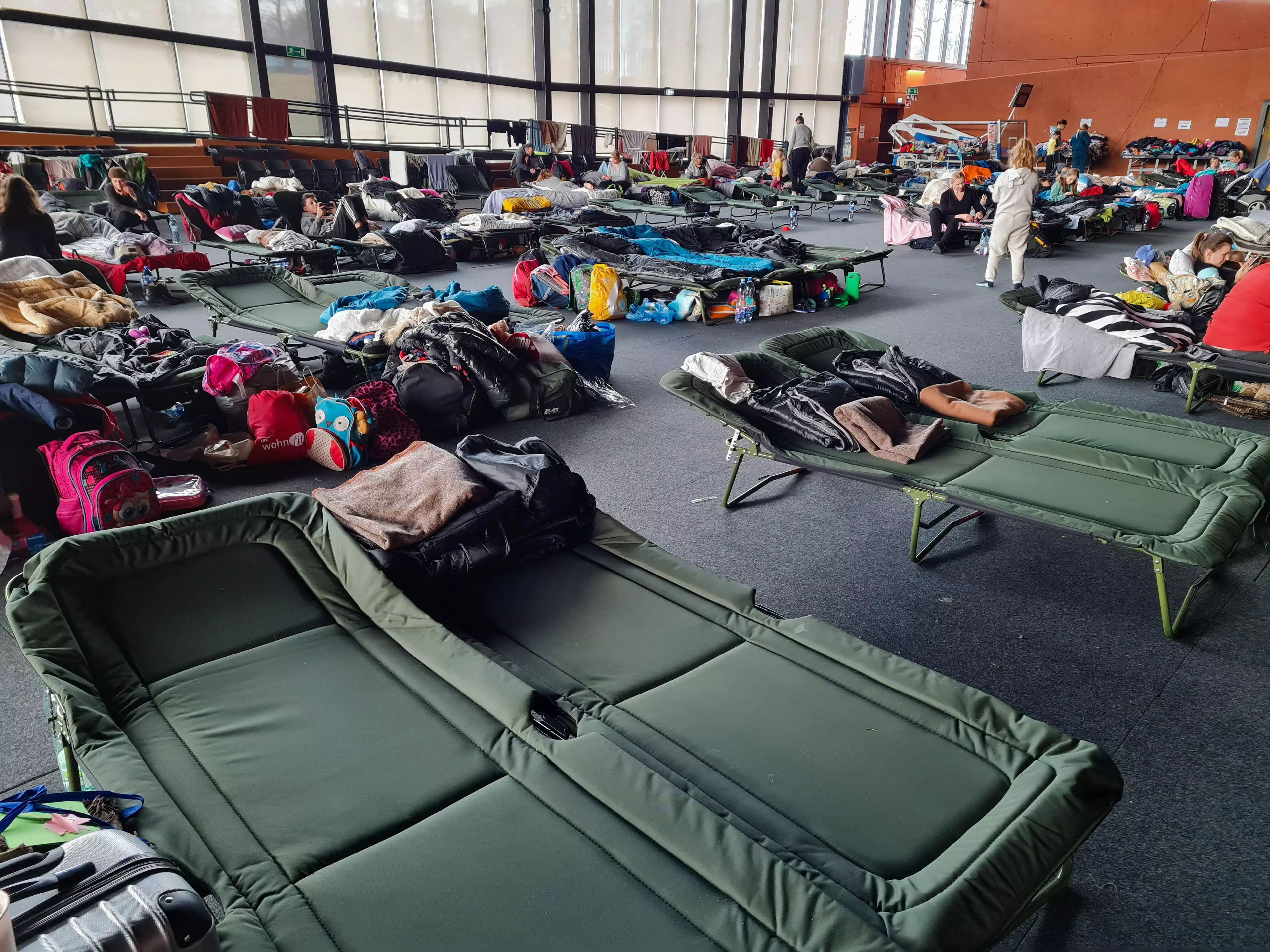
The alternative to the system that is in place for Ukrainians to get to the UK would have been - as many European nations have done - to waive visas and take information from the passports and identity cards of those arriving.
That decision could see an already beleaguered Home Office visa and asylum application system pushed to breaking point, as Cole says: "Other European countries waived visas immediately and there were no problems, people were able to come into Ireland and other European countries but we decided not to do that - I think - partly because it's contrary to general Home Office immigration policy.
"There is already a huge backlog in decision-making, and that is only going to be delayed even further in the 'ordinary' asylum process.
"Because they're insisting that Ukrainians go through the normal visa system that's going to divert resources from the asylum processing system but also the ordinary visa system, so those that are applying for visas to come to work, study, join family are inevitably going to see a knock-on effect because the Home Office struggles to cope at the best of times, and if they're trying to process possibly hundreds of thousands of applications, because they insist on it being a bureaucratic process, then the whole system could well grind to a halt, but let's hope it doesn't."
He continued: "These are people that have passports or national identity cards. They're the only people that can go through the visa process.
"So, you know who they are, they can have their photograph and fingerprints taken immediately upon arrival in the UK, so it seems unnecessarily difficult to make them go through an external process in some way and apply for a visa on the apparent reasoning that there needs to be security checks and identity checks.
"What else more do you need to check [than passports or identity cards]?
"It seems surprising to me that we couldn't do the same as our neighbours in the European Union."
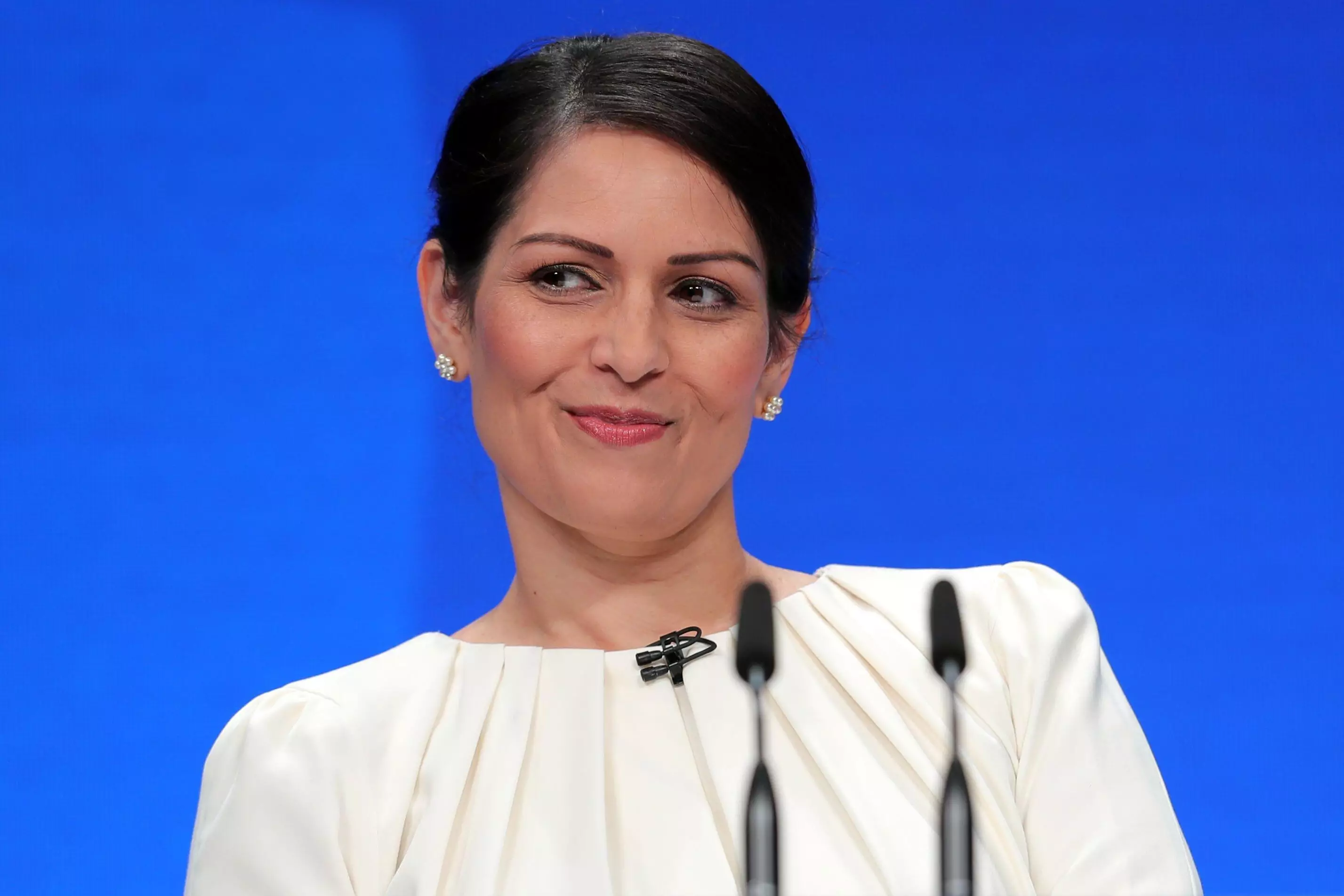
The Prime Minister Boris Johnson has defended the scheme, stating that the UK would be 'generous' to those arriving in the UK, but wouldn't 'abandon controls altogether'.
He said that it was 'sensible' to have 'have some basic ability to check who is coming in and who isn't'.
So far, 73,200 visa applications have been opened and 36,300 have been submitted.
In total - as of 25 March - 21,000 visas have been issued.
Recent data suggests that Poland has received more than 2,200,000 refugees, Romania has taken in excess of 580,000, and other surrounding countries have welcomed Ukrainians in the hundreds of thousands.
A spokesperson for the Home Office told LADbible: "We are moving as quickly as possible to ensure that those fleeing horrific persecution in Ukraine can find safety in the UK, setting up both the Ukraine Family Scheme and now the Homes for Ukraine scheme, which allows those without family connections to come here.
"We have streamlined the visa application process so valid passport holders no longer have to attend in-person appointments before arriving and made changes to the forms people have to fill out in order to help people through the process as quickly as possible."
Cole, however, is unconvinced.
He said: "I don't know what information [Home Secretary Priti Patel] has that we don't, and what she knows that we don't, but it seems surprising that we have to insist on this external out-of-country overly bureaucratic system on that particular justification.
"It seems more their concern that their flagship policy will be undermined if they're seen to just allow this group of people in."
Featured Image Credit: AlamyTopics: World News, UK News, Ukraine, Boris Johnson, Politics, Russia